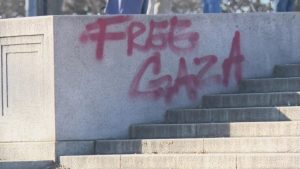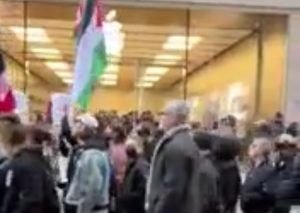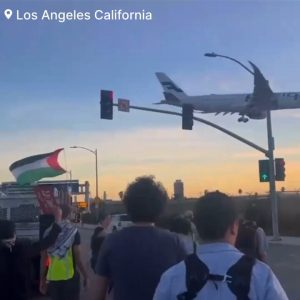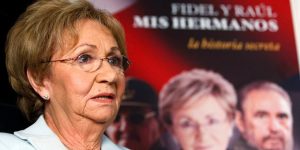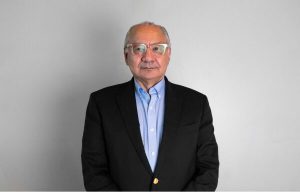A promise of dialogue between the Cuban government and artists calling for greater freedom of expression seems to have stalled, after communist authorities blamed a protest on US interference.
Unprecedented discussions were expected to get underway this week between Culture Minister Alpidio Alonso and artist representatives, but no concrete meeting has been announced.
Commitment to talks was one of the key agreements reached on Friday night after an extremely rare protest by about 300 artists outside the Culture Ministry building in Havana.
Permission for such protests is rarely given in Cuba.
Rarer still, the ministry agreed to receive a delegation of 30 of the artists.
Their demands included freedom of creation and expression, the right to openly disagree with state authorities and an end to repression and harassment of independent artists on the communist-run island.
“It’s a historic moment when the Culture Ministry in a one-party state receives a group of young people who disagree with it,” said filmmaker Juan Pin Vilar, 58, who was part of the delegation. His main motivation in taking part was to “help these young people have a better future.”
He described that initial meeting on Friday as “an example of how to build a country.”
By Saturday, however, the government’s tone had changed. The foreign ministry summoned the US Charge d’Affaires Timothy Zuniga-Brown, accusing him of “blatant and provocative interference” after the US State Department had tweeted its support.
On Sunday, Cuban President Miguel Diaz-Canel denounced “an unconventional war strategy to try to overthrow the revolution.”
Dressed in a T-shirt in the colors of the Cuban flag, Diaz-Canel addressed a gathering of several hundred young people who took part in a “defense of the revolution” rally in a Havana park.
If there is a dialogue, it will only be about “everything that concerns socialism,” he warned.
“You know they tried to trick us. They set up a media circus,” he said, describing the Friday protest as “the last attempt” of the Trump administration to “overthrow the revolution”.
Washington has long funded anti-Communist programs in Cuba, said Michael Bustamante of Florida International University.
“For a long time, the US government has been giving money for what they call the promotion of Cuban democracy,” he said. “These are controversial programs.”
“But it’s far too simplistic to say that as soon as someone has demands related to civil society, it’s orchestrated by Washington.”
The demonstration followed the expulsion by police on Thursday night of members of a previously little known artists’ collective from their premises in the historic center of Havana.
Members of the San Isidro Movement had been protesting for 10 days, with six of them on hunger strike, and their movement had gained significant attention.
Prominent names from Cuba’s cultural world have thrown their weight behind the movement, including actor Jorge Perugorria, director Fernando Perez and, via the internet, the singers Leoni Torres and Cimafunk.
“What’s happened is unprecedented. A whole community of artists, including those close to the institutions, who’ve joined forces….it’s an awakening of consciousness,” said Camila Lobon, a 25-year-old plastic artist.
“What really motivated the demonstration was the community’s demand that the harassment of artists, intellectuals, journalists and, in general, citizens who disapprove of the state’s policies in Cuba be totally stopped, a demand for respect and recognition of freedom of expression.”
Cuba’s mobile 3G internet has played a key role in publicizing the San Isidro Movement’s work, widely disseminated online, and urging hundreds of young artists to turn out at the ministry on Friday.
Social media has given critical voices greater visibility. However, many have criticized sudden outages to Facebook, Twitter and WhatsApp recently.
At the same time the powerful state media has slammed what it called the “San Isidro farce”.
Lobon said the government’s change of tone “is a strategy they have always used….to simply deny that they can give in under popular pressure.”
“The public response in the government media is harsh and I don’t agree with that,” said Juan Pin Vilar.
Regardless, he said, “this dialogue must continue.”


